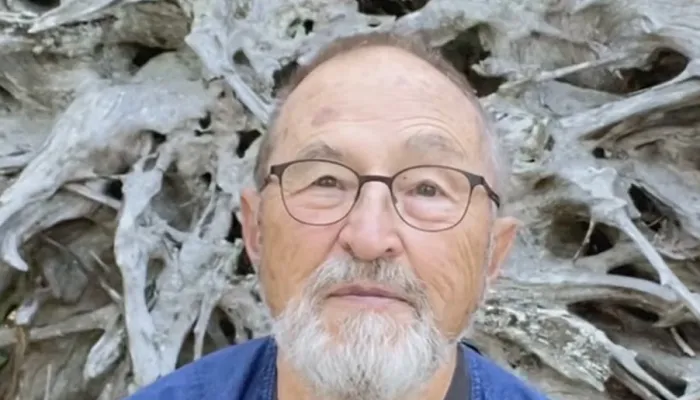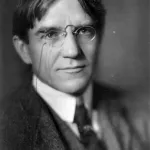Breathe dust like you breathe wind so strong in your face little grains of dirt which pock around the cheeks peddling against a dust-storm coming down a street to the edge of town in Swift Current Saskatchewan or the air walked out into the fields across from Granny Erickson’s house with a few pails of water to catch gophers over by the glue factory downwind of all the horses corralled their shit and hay smell whipped over the grass and the smell of prairie water as unmoved water doesn’t move is stale or even rancid but the air along the prairie road by Uncle Corny’s farm first thing on a clear summer sunday morning and in winter how the snow smelled like coal when I maybe later in Trail B.C. up the alley behind our place my mother needed water to melt on top of the wood cook stove so she sent me out with my sleigh and a galvanized washtub to collect the snow so dirty in the city I scraped off the top few inches before I put my shovel in and then packed it into the tub and back to the house and stove air hot and steamy pink over the stove my mother what did she need that water for I don’t know but where somewhere the snow smelled like coal or is it back in Swift Current the cold so cold it smelled of cold I don’t remember maybe we had oil there we did later in Nelson and I had to go out into the shed and pump a bucket of oil from a 45-gallon drum for the stove in the living room but the shed had a coal bin too coal for the stove in the kitchen at night coal dust even later filling up Pearson’s furnace hopper every three days move it shovel full across the basement the dust even later in the summer play anywhere someone’s coal bin settled into my nose and the oilyness of it on the skin I rode down the hill outside the house on Victoria on a coal shovel I hit a rock and had the wind knocked out of me I was dying and couldn’t even tell anyone as they walked by but stood and waved my arms and flailed the message without air
Nearly punctuation-free, this is a breathless journey through memories of a youth spent in rural Canada.
- What kind of chores does this poem describe? How are they different from chores you might do at home today?
- How do you think the poem’s title relates to the lack of punctuation (with the exception of a few apostrophes)?
- Do these seem like happy memories for the speaker? When you come to the line, “I was dying,” towards the end of the poem, what do you think the speaker means? How does this experience colour the speaker’s memories?
- What effect does the repetition of the line “the snow smelled like coal” create? How does this repetition and its placement (halfway through the poem) complicate the reader’s trust in the speaker’s memory?
- How could you convey the speaker’s difficulty breathing in your recitation? Would you let the audience hear you run out of breath? Would you speak quickly or slowly? When (if ever) would you create a silence?
- Fred Wah likens this poem to improvisational jazz. Think about a song you like, and consider its formal elements (e.g. rapid rhyme strings, repeated phrases). Now try writing a poem that uses the same formal elements as the song.
Useful Links
- We might imagine breathing dust as both literal and metaphorical in this poem; check out this link for the physical effects of dust on the lungs: https://www.ccohs.ca/oshanswers/chemicals/lungs_dust.html
- Watch Fred Wah read his poems “The Snowflake Age” and “Music at the Heart of Thinking 108.”
Fred Wah, “Breathe dust...” from Breathin' My Name With a Sigh. Copyright © 1981 by Talonbooks. Reprinted by permission of Talonbooks.





